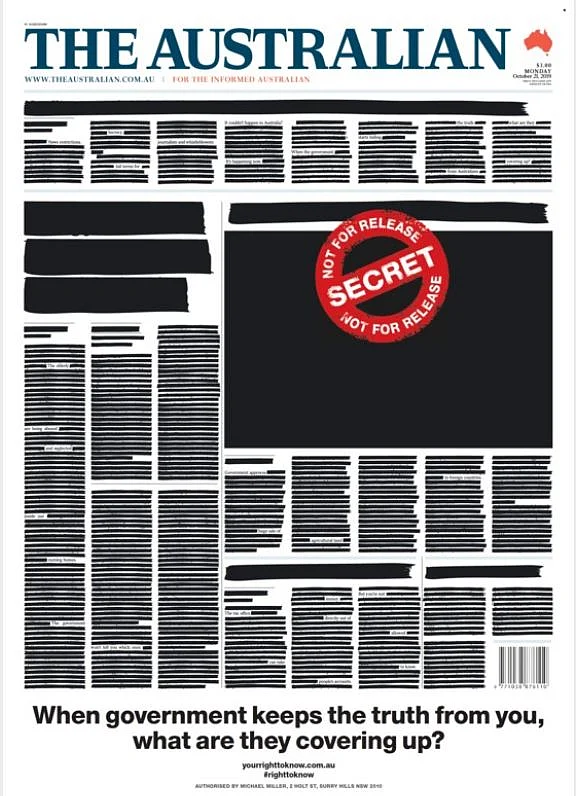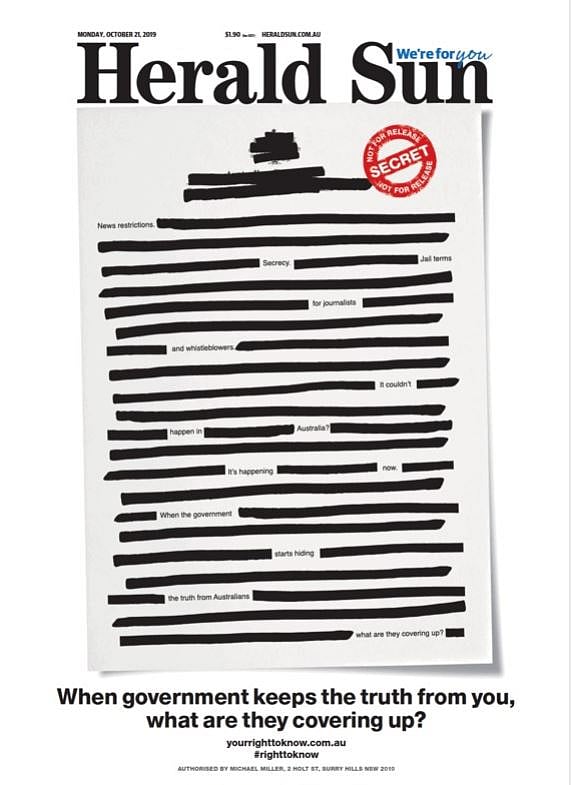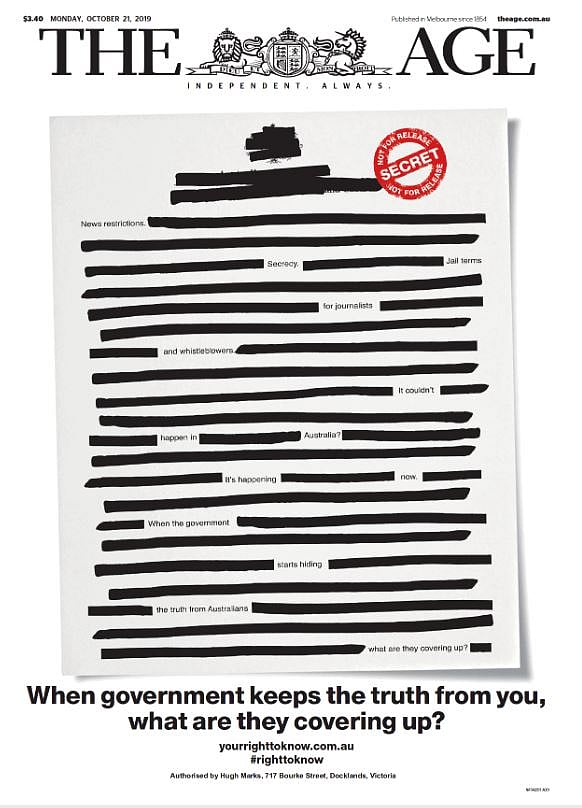Australian newspapers black out front pages to protest against secrecy laws
Australia’s leading newspapers and internet portals have self-censored their publications to protest laws that mandate prison sentences for journalists and informants for revealing secret documents

Australia's leading newspapers and internet portals have self-censored their publications on Monday to protest laws that mandate prison sentences for journalists and informants for revealing secret documents.
The front pages of newspapers such as The Sydney Morning Herald, The Australian, Financial Review, The Daily Telegraph, among others, were printed with large sections appearing to have been censored with black ink, bearing a red seal with "secret, not to be disclosed" written on it, Efe news reported.
"The culture of secrecy that has descended through these legal provisions restricts every Australian's right to know and goes well beyond the original intent of national security," Media Entertainment and Arts Alliance union head Paul Murphy said in a statement.

The actions by the print media come in the footsteps of a television campaign launched on Sunday night, led by Australia's 'Right to Know' group, of which the broadcasters ABC and SBS, and Channel 9 are a part.
"When the government hides the truth from you, what are they covering up?" read ads rolled out on the country's media networks.
The campaign comes after the police raided ABC's Sydney headquarters in June and the residence of a News Corp journalist in Canberra for allegedly leaking secret documents.

Two ABC journalists and the News Corp reporter face a possible prison sentence for the alleged leaks, although Attorney General Christian Porter announced in late September that any legal proceedings against a journalist must first be authorized by his office.
Since 2001, Australia has passed 75 laws to strengthen national security. The latest among them, adopted last year, extended prison sentences for disclosing classified information.
Murphy said it was time to knock down these excessive laws and decriminalize journalism and informants, as it served the public interest.
According to a report in BBC, Campaign on Monday, by the Right to Know Coalition, was also supported by several TV, radio and online outlets.
Michael Miller, executive chairman of News Corp Australia, urged the public to ask of the government, "What are they trying to hide from me?"
Nine - publisher of the Sydney Morning Herald and The Age - ran similar front pages. ABC managing director David Anderson said, "Australia is at risk of becoming the world's most secretive democracy."
Australian government on Sunday reiterated it was possible that three journalists may face prosecution in the wake of the raids.
Prime Minister Scott Morrison said press freedom was important to Australia's democracy, but added the "rule of law" needed to be upheld.
"That includes me, or any journalist, or anyone else,'' he said on Sunday.
with IANS inputs
Follow us on: Facebook, Twitter, Google News, Instagram
Join our official telegram channel (@nationalherald) and stay updated with the latest headlines
